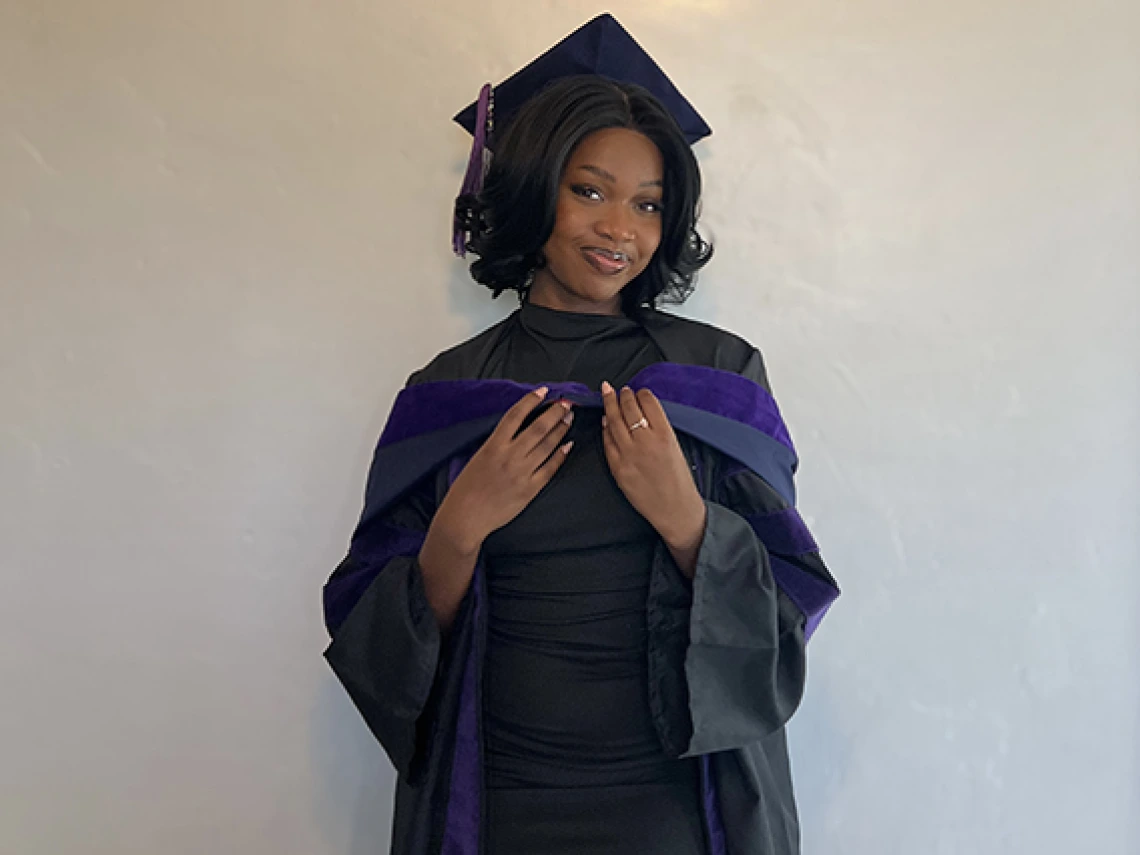Class of 2025: LLM Grad Elaine Porokwa Using Law to Empower Indigenous Voices

Growing up in the Maasai community in Arusha, Tanzania, Elaine Porokwa experienced a culture grounded in collective care—yet one often overlooked by those outside it.
“No one was really advocating for us. I think that's a shared reality for many Indigenous peoples around the world,” said Porokwa.
As the eldest in her family, she felt a natural call to speak up for her people, especially in spaces where their voices had long been absent. Motivated by a desire to advocate for Indigenous rights, Porokwa discovered the University of Arizona Law’s Master of Laws (LLM) in Indigenous Peoples Law and Policy (IPLP) program—and says it immediately felt like the right fit.
“This program spoke directly to the issues I care most about: land rights, cultural preservation, and environmental justice for Indigenous peoples,” she says. “It felt less like choosing a university and more like finding the place where my passion and purpose could grow.”
During her LLM studies, Porokwa focused on Indigenous peoples’ rights, both domestically and internationally. Courses like Federal Indian Law, International Environmental Law, and Gender Justice helped her explore critical intersections between land rights, environmental protection, and gender equality—all through an Indigenous lens. Through hands-on experiences in the Gender Justice Clinic and the International Human Rights Advocacy Workshop, she moved beyond the classroom, co-authoring submissions to the Committee on the Elimination of Discrimination against Women (CEDAW) and observing Indigenous rights in real-time through discussions at the United Nations.
“It was the intention and focus of the program that drew me in. It’s not just about studying the law but shaping it, finding ways and tools to use it in advocacy,” she says.
Some of her most transformative moments happened within the first few weeks in the program.
“Growing up, I developed a deep frustration toward systems of authority because of the injustices we faced. My advocacy was rooted in pain and resistance, in demanding to be heard,” she says.
But in a course with Regents Professor Robert Williams Jr., a single question shifted her perspective. He asked the class, “How do we use the master’s tools to dismantle the master’s house?”
“That one sentence completely changed my perspective,” she says. “Professionally, it taught me to see law not just as a rigid structure, but as a tool, one I can learn to master and use to empower my people. Personally, it grounded my advocacy in strategy, not just emotion. I stopped focusing on asking to be understood and started asking, ‘How can I use the law to give my people the justice they deserve?’”
Looking back on her time in the LLM program, she realizes she was not just reading or writing about change but actively part of it. Making an impact that extends beyond her and reaches her people and millions of others across the world.
“This LLM has done more than deepen my understanding of the law—it has placed me in the room, participating in the very systems that shape global human rights,” she says.
After earning her LLM, Porokwa will continue her legal education at Arizona Law and begin her SJD in IPLP this fall, diving deeper into her research and advocacy.
Ultimately, Porokwa hopes to contribute to the legal field with the knowledge she has gained to continue building legal pathways that uplift and empower Indigenous communities, especially Indigenous women. With her focus on land rights, cultural preservation, and environmental justice, areas she feels the law has often failed Indigenous communities but also hold potential for change.
“I want to use the law not just as a tool for advocacy, but as a bridge between traditional knowledge and formal legal systems,” she says. “My goal is to create a space where Indigenous voices are not only heard but lead the conversation locally, nationally, and globally. Whether through teaching, research, or direct advocacy, I hope to contribute to a legal field that is more inclusive, just, and rooted in respect for Indigenous rights.”
